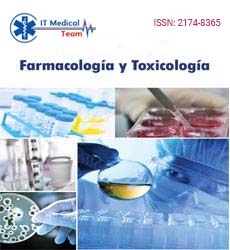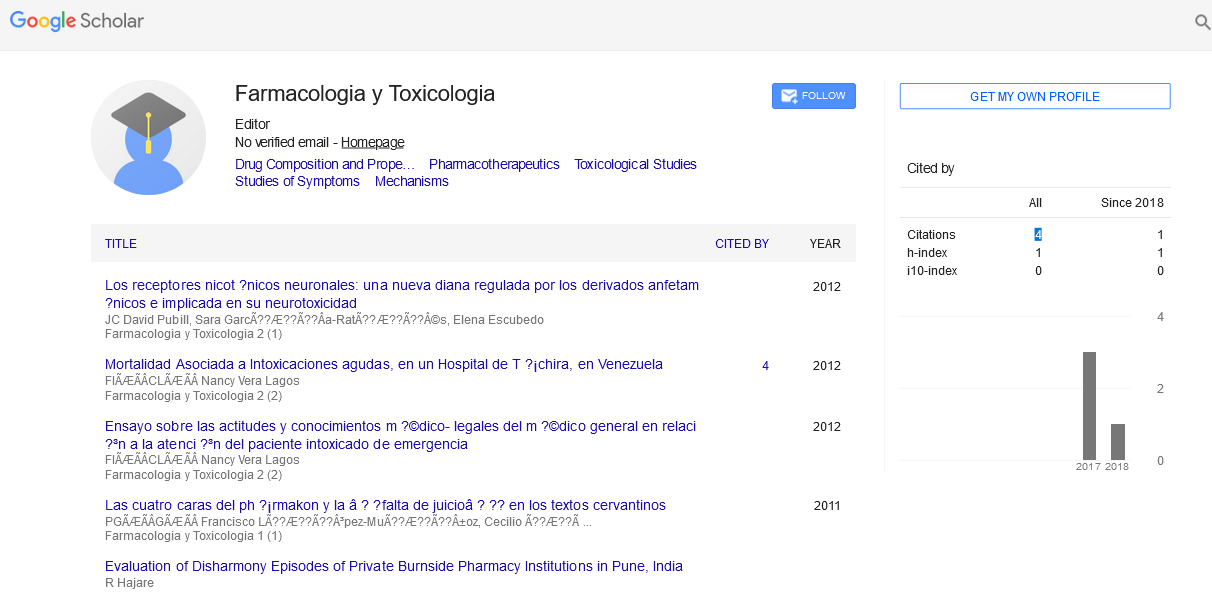Commentary Article - (2023) Volume 13, Issue 2
Pharmacotherapeutics: Principles, Applications, and Challenges
Dr. Fang Zang Loa*
University of Tennessee Health Science Center, College of Medicine, Memphis, TN 38163, USA
*Correspondence:
Dr. Fang Zang Loa, University of Tennessee Health Science Center, College of Medicine, Memphis, TN 38163,
USA,
Email:
Received: 03-Apr-2023, Manuscript No. Ipft-23-13756;
Editor assigned: 05-Apr-2023, Pre QC No. P-23-13756;
Reviewed: 19-Apr-2023, QC No. Q-23-13756;
Revised: 22-Apr-2023, Manuscript No. R-23-13756;
Published:
29-Apr-2023
Abstract
Pharmacotherapeutics is the use of drugs to treat diseases and manage symptoms. It involves a combination of pharmacology and therapeutics to ensure safe and effective use of medications. This article provides an overview of pharmacotherapeutics, including the principles of drug action, drug development, and clinical applications. We also discuss the challenges associated with pharmacotherapeutics, including adverse drug reactions and drug interactions. The aim of this article is to provide a comprehensive understanding of pharmacotherapeutics to healthcare professionals.
Keywords
Pharmacotherapeutics; Drugs; Drug development; Clinical applications; Drug reactions; Drug interactions
INTRODUCTION
Pharmacotherapeutics is a crucial aspect of modern
medicine. The use of drugs has revolutionized the
treatment and management of diseases and disorders.
The development of new drugs and the advancement of
pharmacology have provided healthcare professionals
with a wide range of therapeutic options. However,
the use of drugs is not without risks. Adverse drug
reactions (ADRs) and drug interactions can have serious
consequences. Therefore, understanding the principles
of pharmacotherapeutics is essential for safe and effective
use of medications. [1, 2]. The pharmacokinetic profile
of a drug determines its dosing regimen, which is the
schedule and amount of medication that a patient should
take. Pharmacogenetics is the study of how genetic factors
can influence drug response. The genetic makeup of an
individual can affect how they metabolize drugs and how
they respond to medications. Pharmacogenetic testing
can help identify genetic variations that can affect drug
response, allowing healthcare providers to personalize
medication regimens for their patients [3, 4].
DISCUSSION
Drug development
Drug development is a lengthy and complex process
that involves several stages, including drug discovery,
preclinical testing, clinical trials, and regulatory approval.
The aim of drug development is to ensure the safety and
efficacy of drugs before they are marketed for human use.
The development process involves collaboration between
academia, industry, and regulatory agencies [5].
Clinical applications
Pharmacotherapeutics has numerous clinical applications.
Drugs can be used to treat a wide range of diseases, including
infections, cancer, cardiovascular diseases, and neurological
disorders. They can also be used to manage symptoms such
as pain, anxiety, and depression. The choice of drug and
dosage regimen depends on several factors, including the
patient's age, weight, and medical history [6].
Challenges in pharmacotherapeutics
Despite the benefits of pharmacotherapeutics, there
are several challenges associated with the use of drugs.
Adverse drug reactions (ADRs) are a significant concern,
particularly in elderly patients who are more susceptible
to drug-related complications. Drug interactions can also lead to unexpected outcomes, such as increased toxicity
or reduced efficacy. Therefore, healthcare professionals
must be vigilant and take measures to minimize the risks
associated with drug therapy [7, 8].
CONCLUSION
However, medication use is not without risk, and adverse
drug reactions and medication errors can occur, leading to
harm and even death.
Pharmacotherapeutics is an essential component of
modern medicine. The development of new drugs and the
advancement of pharmacology have provided healthcare
professionals with a wide range of therapeutic options.
However, the use of drugs is not without risks. It is essential
to recognize that medication use is just one aspect of
healthcare and should be used in conjunction with other
treatments such as lifestyle modifications, physical therapy,
and surgery when necessary. Adverse drug reactions and
drug interactions can have serious consequences [9, 10].
Therefore, healthcare professionals must be knowledgeable
about the principles of pharmacotherapeutics and take
measures to minimize the risks associated with drug
therapy. Pharmacotherapeutics is a crucial aspect of modern
healthcare that involves the use of medications to prevent,
manage, and treat a wide range of illnesses and diseases.
Medications have numerous advantages, including treating
and managing illnesses, preventing illnesses, improving
quality of life, providing personalized treatment, saving
lives, and being a cost-effective treatment option.
To minimize the risk of adverse effects, healthcare providers
must carefully consider the potential benefits and risks of
medication use, monitor patients closely for any signs of
adverse effects, and take steps to prevent medication errors.
This includes proper dosing, avoiding drug interactions,
and taking into account patient factors such as age, weight,
and genetics. Patients should also inform their healthcare
providers of any other medications or supplements they are
taking to avoid potential drug interactions. In addition to
these preventative measures, advances in pharmacogenetics
and personalized medicine have made it possible to
tailor medication regimens to individual patients' needs,
improving treatment outcomes and reducing the risk of
adverse effects. Personalized medicine takes into account
a patient's unique genetic makeup and response to
medications, allowing for more effective and individualized
treatment plans. Despite the potential risks, the benefits
of medication use make them an essential tool in modern
healthcare. Medications have played a crucial role in
improving survival rates for many diseases, such as cancer,
HIV, and heart disease. They can also improve patients'
quality of life by reducing symptoms such as pain, nausea,
and fatigue and improving their ability to carry out daily
activities.
Moreover, healthcare providers must educate patients
on the importance of taking medications as prescribed,
potential side effects, and what to do if adverse effects occur.
This can help patients better manage their conditions and
avoid potential harm.
ACKNOWLEDGMENT
None
CONFLICT OF INTEREST
No conflict of interest to declare about this work.
REFERENCES
- Uitterlinden EJ, Jahr H, Koevoet JL, et al. Glucosamine reduces anabolic as well as catabolic processes in bovine chondrocytes cultured in alginate. Osteoarthritis Cartilage.2007; 15(2): 1267-1274.
Indexed at, Google Scholar, Crossref
- Jones IA, Togashi R, Wilson ML, et al. Intra-articular treatment options for knee osteoarthritis. Nat Rev Rheumatol.2019; 15(1): 77-90.
Indexed at, Google Scholar, Crossref
- Reginster JY, Bruyere O, Neuprez A. Current role of glucosamine in the treatment of osteoarthritis. Rheumatology.2007; 46(5): 731-735.
Indexed at, Google Scholar, Crossref
- Leffler CT, Philippi AF, Leffler SG, et al. Glucosamine, chondroitin, and manganese ascorbate for degenerative joint disease of the knee or low back: a randomized, double-blind, placebo-controlled pilot study. Mil Med.1994; 164(1): 85-91.
Indexed at, Google Scholar, Crossref
- Reginster JY, Neuprez A, Lecart MP, et al. Role of glucosamine in the treatment for osteoarthritis. Rheumatol Int.2012; 32(4): 2959-2967.
Indexed at, Google Scholar, Crossref
- Houpt JB, McMillan R, Wein C. Effect of glucosamine hydrochloride in the treatment of pain of osteoarthritis of the knee. J Rheumatol.1999; 26(5): 2423-2430.
Indexed at, Google Scholar, Crossref
- Scholtissen S, Bruyère O, Neuprez A, et al. Glucosamine sulphate in the treatment of knee osteoarthritis: cost-effectiveness comparison with paracetamol. Int J Clin Pract.2010; 64(1): 756-762.
Indexed at, Google Scholar, Crossref
- Golani P, Pandit M. Evidence of Epithermal Activity and Gold Mineralization Newania Carbonatite, Udaipur District, Rajasthan. J Geol Soc.1999; 54(6): 251-257.
Indexed at, Google Scholar
- Veizer J, Plumb KA, Clayton RN, et al. Geochemistry of Precambrian carbonates: V Late Paleoproterozoic seawater. Geochim Cosmochim Acta.1992; 56(2): 2487-2501.
Indexed at, Google Scholar Crossref
- Nothdurft LD, Webb GE, Kamber BS. Rare earth element geochemistry of Late Devonian reefal carbonates, Canning Basin, Western Australia: confirmation of a seawater REE proxy in ancient lime stones. Geochim Cosmochim Acta. 2004;68(2): 263-283.
Indexed at, Google Scholar, Crossref





